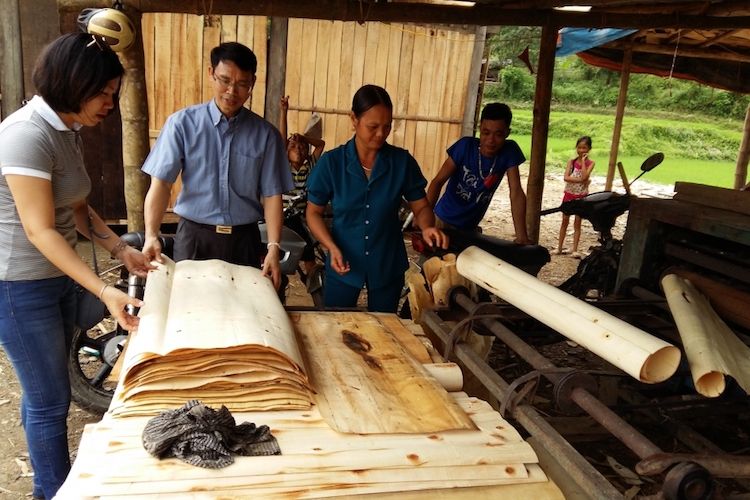By Ronald Joshua
ROME (IDN) – Forestry and agriculture provide livelihoods for nearly 80 percent of the population in the northern regions of Viet Nam. However, nearly half of all households own less than one hectare of land, which often prevents farmers from earning the income they need.
To help smallholder farmers find ways to raise their incomes – while sustainably using forest resources – the Forest and Farm Facility (FFF) partnered with the Viet Nam National Farmers’ Union (VNFU) to support farming families in forming life-changing cooperatives.
This three-pronged move aimed at achieving three critical objectives of the Sustainable Development Goals: No poverty (Goal 1), decent work and economic growth (Goal 8), and sustainably manage forests (Goal 15). The result is a thriving forest product, which is helping boost family farmers’ incomes in Viet Nam.
Set up in 2012, the FFF is a partnership between the UN’s Food and Agriculture Organization (FAO), the International Institute for Environment and Development (IIED), the International Union for the Conservation of Nature (IUCN) and AgriCord. This collaboration with the VNFU aimed to strengthen farmer organizations, improve farmers’ incomes and protect natural resources. The FFF focused on seven value chains: tree nurseries, timber, cinnamon products, star anise oil, tea, pomelo and forest chickens.
Together, VNFU and FFF helped smallholder farmers improve their technical knowledge and business skills. By coming together and forming cooperatives, smallholder farmers could more easily earn organic certifications, invest in new production techniques and sign contracts with companies and traders. Working together also enabled farmers to increase the value of the goods they produced and gain a stronger voice with the local authorities.
Nguyen Trí Tue is one of the cinnamon producers in the Dao Thinh cooperative who has benefitted from the FFF’s support. He received a full-fledged training in organic cinnamon production, which included leadership’s training project organization, market analysis and product development.
“Prior to receiving the support of the FFF and VNFU team, most of us were selling our products individually to middlemen and traders. We did not have market information or negotiation power, so the price depended on the buyers,” said Nguyen Trí Tue. “The prices were low and not stable – and the cinnamon growers often got less income because they had little knowledge of the market or of processing options.”
As a result of the business and marketing skills that the members of the Dao Thinh cooperative gained, they soon began introducing their improved cinnamon products at local and regional agricultural fairs. Using their increased incomes, members of the cooperative were later able to lease more than 9 900 square metres of land to build a cinnamon-processing factory that was completed in 2019. The cooperative now market various certified-organic cinnamon products to a wide range of national buyers and importers from the European Union and Japan.
So far, 14 collective groups and cooperatives benefiting directly 650 farmers (45 percent of them female) have been established by the project, and members have seen their incomes rise by 10 to 20 percent. The initiative has also had policy effects, with new forest roads being built to improve market access. And with more production certified as organic, farmers are helping protect the environment even as they earn a higher price for their products.
In Viet Nam and elsewhere, family farmers are key partners and agents of change in sustainable development. Empowering family farmers to fulfil their potential means shifting the focus of food systems from staple crops on private farms to a diversity of products produced by the broader landscape, including fruits, vegetables and even nutrient-rich forest based foods. We need to encourage partnerships, like those with family farmers and their organizations, to help build sustainable food systems, encourage climate resilience and maintain economic opportunities for rural people. This is a key element for success in creating a #ZeroHunger world. [IDN-InDepthNews – 22 July 2019]
Photo: Family farmers are key partners in transforming food and agricultural production into sustainable systems, helping to address challenges like depletion of natural resources. ©VNFU/Vu Le Y Voan
IDN is flagship agency of the International Press Syndicate.
facebook.com/IDN.GoingDeeper – twitter.com/InDepthNews
Send your comment:comment@indepthnews.colo.ba.be
Subscribe to IDN Newsletter: newsletter@indepthnews.colo.ba.be

